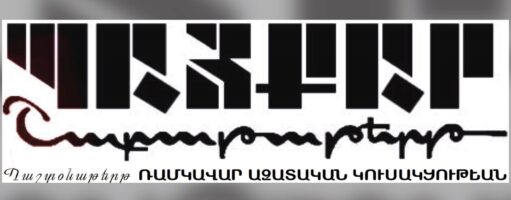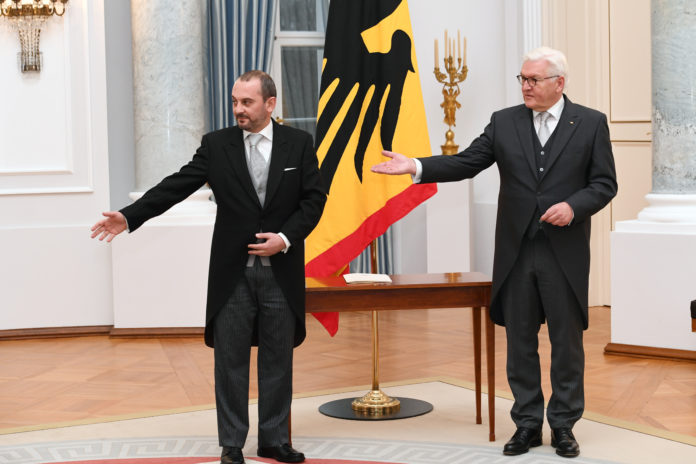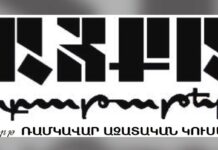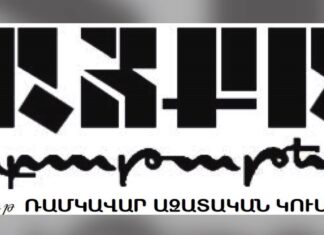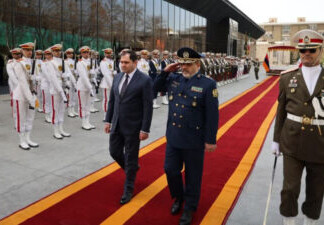BERLIN — On November 26 the French Senate voted 295-1 in favor of a resolution calling for sanctions on Azerbaijan in response to its attacks against Armenia and aggression against Nagorno-Karabakh. It demanded Baku pull its troops out of Armenia, and reaffirmed a resolution the Senate had passed in 2020 in favor of French government recognition of Nagorno-Karabakh.
The immediate question posed by the French move is: how will the rest of Europe respond? First and foremost, how will Germany respond? That question was at the center of a dialogue in Berlin between Dr. Raffi Kantian, president of the Deutsch-Armenische-Gesellschaft, and Viktor Yengibaryan, the Armenian ambassador in Berlin. Broadcast live via Zoom, the discussion was part of a series of events organized by the DAG known as the Berliner Reihe. Ashot Smbatyan, Yengibaryan’s predecessor who is now serving in Georgia, had also been a special guest.
The Berlin event, titled, “After the 44-Day War and Azerbaijan’s Aggression: Growing Awareness, Competing Interests,” took place on the same day the French Senate opened its debate. As Kantian noted in his welcoming remarks, both US Secretary of State Anthony Blinken’s explicit identification of Azerbaijan as the aggressor in its mid-September attacks, and the French Senate’s debate demonstrated such growing international awareness.
Yengibaryan said the French resolution was “good news,” and expressed his gratitude for the support. He would “welcome such a resolution from Germany;” acknowledging the considerable understanding and sympathy expressed in Foreign Ministry and Bundestag (Parliament) circles, he mentioned statements by the SPD (Social Democratic Party) for Azerbaijani troop withdrawal, and a resolution the party passed for a negotiated peace. Although certainly important, as the SPD is a member of the three-party coalition federal government led by SPD Chancellor Olaf Scholz, the resolution was passed not by the Bundestag but by the SPD parliamentary faction. As for the government’s position, “the situation is a bit different.” Yengibaryan pointed to the October European Union meeting in Prague, and expressed his gratitude for the subsequent foreign ministers’ decision to send an observer mission to the Azerbaijan-Armenian border.
Kantian spoke against the “deafening silence” emanating from the German foreign ministry, especially from Foreign Minister Annalena Baerbock, who “found words talk about the suffering women in Iran — and rightly so,” but has said nothing about the “massive crimes” committed against Armenian soldiers, including female combatants. Surprising, he noted, for someone who pledged to follow a “feminist foreign policy.”
In contrast, the US appears to be actively engaged. Kantian stressed the importance of Speaker of the House Nancy Pelosi’s visit, followed by other American lawmakers, and direct phone contact between Blinken and Armenian president Nikol Pashinyan. Yengibaryan agreed that the US, already involved in the Organization for Security and Cooperation in Europe (OSCE) Minsk Group process, has become very active. He emphasized the fact that Azerbaijan’s aggression against Armenia also constitutes a violation of international law which, in the current fragile security situation, constitutes a setback for Europe and the world order. Such aggression elsewhere in Europe or in the Caucasus cannot be allowed. He identified manifold geopolitical interests in the crisis, not only for America, but also Russia, Iran, Turkey and the EU, and applauded the will on the part of western nations, including Germany, to stop the aggression. Most important for Armenia, he said, is that “the biggest players have an interest in establishing stability in our region.”
